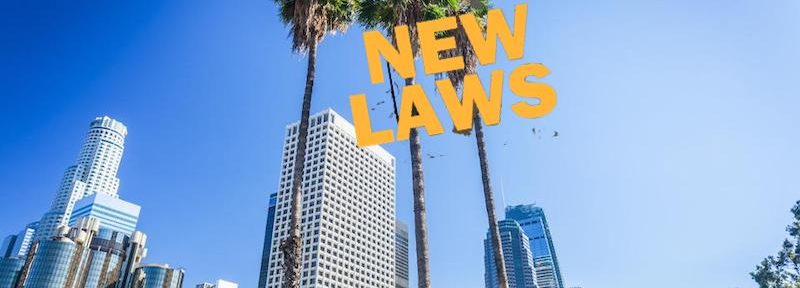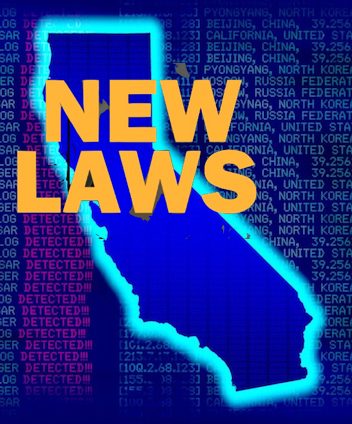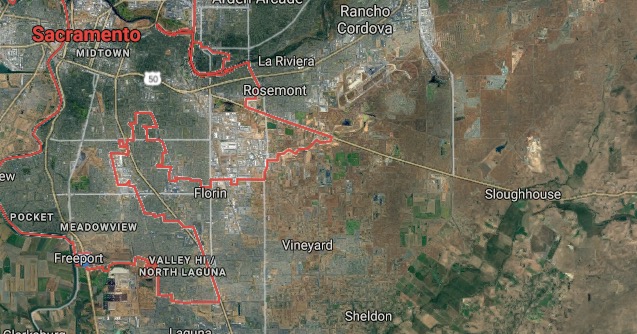SACRAMENTO, CALIFORNIA. (THECOUNT) — Dozens of new California laws go into effect on January 1, 2020 – From a minimum wage increase to a ban on suspending kids from school.
Here’s a list of 23 new laws that will impact Californians in 2020: most taking effect on Jan. 1, 2020.
|
Advertisement |
Employment
AB 5 – Gig worker law
The landmark labor law reclassifies some independent contractors as employees. It aims to provide new protections for so-called gig economy workers such as minimum wage, paid sick days and health insurance benefits. Organizations representing freelance journalists have already sued over the law and Uber has said it will not adhere to the changes.
SB 3 – Minimum wage increase
The law raises the state minimum wage to $13 an hour for workplaces with 26 or more employees and to $12 for workplaces with fewer than 26 employees. The law outlines incremental minimum wage increases through 2023 when it will reach $15 an hour for all workplaces.
AB 9 – Employment discrimination
The law allows employees up to three years to file complaints of discrimination, harassment or retaliation with the Department of Fair Employment and Housing. Previously, employees had only had one year to file a complaint.
SB 142 – Protection for nursing mothers
The law requires employers to provide clean and safe lactation rooms for breastfeeding mothers. Employers would have to “provide access to a sink and refrigerator in close proximity to the employee’s workspace,” the law says. It also requires the room be free of intrusion and that employers offer mothers breaks specifically for nursing.
SB 188 – Hairstyle discrimination
The law protects employees from racial discrimination because of hairstyles, such as afros, braids, twists and locks. California is the first state in the nation to ban such practices.
SB 1343 – Sexual harassment training
The law requires workplaces with five or more employees to provide at least two hours of sexual harassment training within six months of being hired.
SB 83 – Extending paid leave
The law increases paid leave from six to eight weeks for people taking care of a seriously ill family member or to bond with a new child. It takes effect July 1, 2020.
*AB 51 – Arbitration agreements (blocked on Dec. 30, 2019)*
A federal judge on Monday temporarily blocked a new California law outlawing mandatory arbitration agreements that critics say can make it more difficult for workers to sue their bosses for sexual harassment. Read more here.
Environment and Animals
SB 8 – Banning smoking at state beaches
The law bans smoking at all state beaches and parks, with a fine of $25 per violator. It also makes it illegal to toss a cigarette or cigar onto a state beach.
SB 313 – Circus Cruelty Prevention Act
The law bans the use of exotic animals like elephants in circus acts. It only allows dogs, cats and domesticated horses to be part of circus performances.
SB 1249 – Animal testing on cosmetics
The law bans the import and sale of cosmetics products in California that include ingredients that were tested on animals or was manufactured through animal testing.
Criminal Justice
AB 12 – Gun violence restraining orders
The law expands who can petition a judge to confiscate someone’s weapons if they believe that person may be violent. Existing law allows police, immediate family members and roommates to request a restraining order. The updated law allows employers, coworkers and teachers to be able to do so. The law goes into effect Sept. 1, 2020.
SB 439 – Juvenile hall age
The law changes the age minors can be to 12 in order for them to be sent to juvenile hall. A child under 12 would be released to their parent or legal guardian. The law does not apply to minors who commit murder, rape or great bodily harm.
AB 32 – Bans private, for-profit prisons
The law bars California from keeping prisoners in private, for-profit prisons and immigrant detention centers starting in 2028. Starting on Jan. 1, 2020, the state cannot renew contracts with private prisons.
AB 218 – Statute of limitations for childhood sex assaults
The law gives victims of childhood sexual abuse until age 40, or five years from discovery of the abuse, to file civil lawsuits. The previous limit had been 26, or within three years from discovery of the abuse. It also suspends the statute of limitations for three years — beginning Jan. 1, 2020 — giving victims of all ages time to bring lawsuits if they wish.
AB 602 – Deepfake porn lawsuits
The law requires consent from a person before their likeness can be digitally reproduced in porn. It also gives people whose likeness was used in “deepfake” porn more options to sue in civil court.
SB 273 – Domestic violence statute of limitations
The law extends the statute of limitations to report domestic violence to law enforcement from one year to five years. The change would apply to domestic violence that happens on or after Jan. 1, 2020. It also applies to crimes for which the statute of limitations was in effect before Jan. 1, 2020, and had not run out. The law also requires more training for law enforcement on de-escalation techniques and interviewing victims in a different place from the suspect.
Education
SB 419 – School suspension
The law prohibits schools, including charter schools, from suspending students for willful defiance. That means if a student is acting up in class, teachers and school officials will not be able to suspend them from school. Students can still be suspended for violence or bringing a weapon or drugs to campus. Students in grades 9 to 12 could still be suspended for willful defiance — but not expelled. The law goes into effect July 1, 2020.
SB 354 – Grants for Dreamers for graduate programs
The law expands the DREAM Loan Program. Now, Dreamers, undocumented youth who were brought to the U.S. as children, enrolled in programs for a professional or graduate degree at a public university can apply for state-funded grants.
Housing
AB 1482 – Rent Cap
The law caps rent increases at 5% each year plus inflation for the next decade. The cap does not apply to property built within the last 15 years. It also requires landlords to provide just cause for evictions.
SB 652 – Display of religious items
The law prohibits property owners from stopping the display of religious items on a door or door frame of a dwelling.
–
Other
AB 539 – Interest rate cap
The law caps interest rates at 36% above the U.S. Federal Reserve’s main interest rate on loans between $2,500 and $10,000. It aims to prevent predatory lending practices.
SB 30 – Domestic partnership law
The law gives heterosexual couples an alternative to marriage. It expands the option of a domestic partnership from same-sex couples to heterosexual couples. California law treats domestic partners and married people the same for tax purposes. But federal law does not recognize domestic partners. That could let some couples avoid the federal “marriage penalty,” which is a higher tax resulting from when two people marry who have the same income.
AB 577 – Maternal mental health care coverage
The law expands coverage for maternal mental health from 60 days to one year for Medi-Cal patients.
(Source)
Geo quick facts: Sacramento, capital of the U.S. state of California, lies at the confluence of the Sacramento River and American River. The district of Old Sacramento harkens back to the city’s Gold Rush era, with wooden sidewalks and wagon rides. One of several museums in Old Sacramento, the California State Railroad Museum depicts the construction of the Transcontinental Railroad, one of the country’s earliest technological feats – wikipedia.



